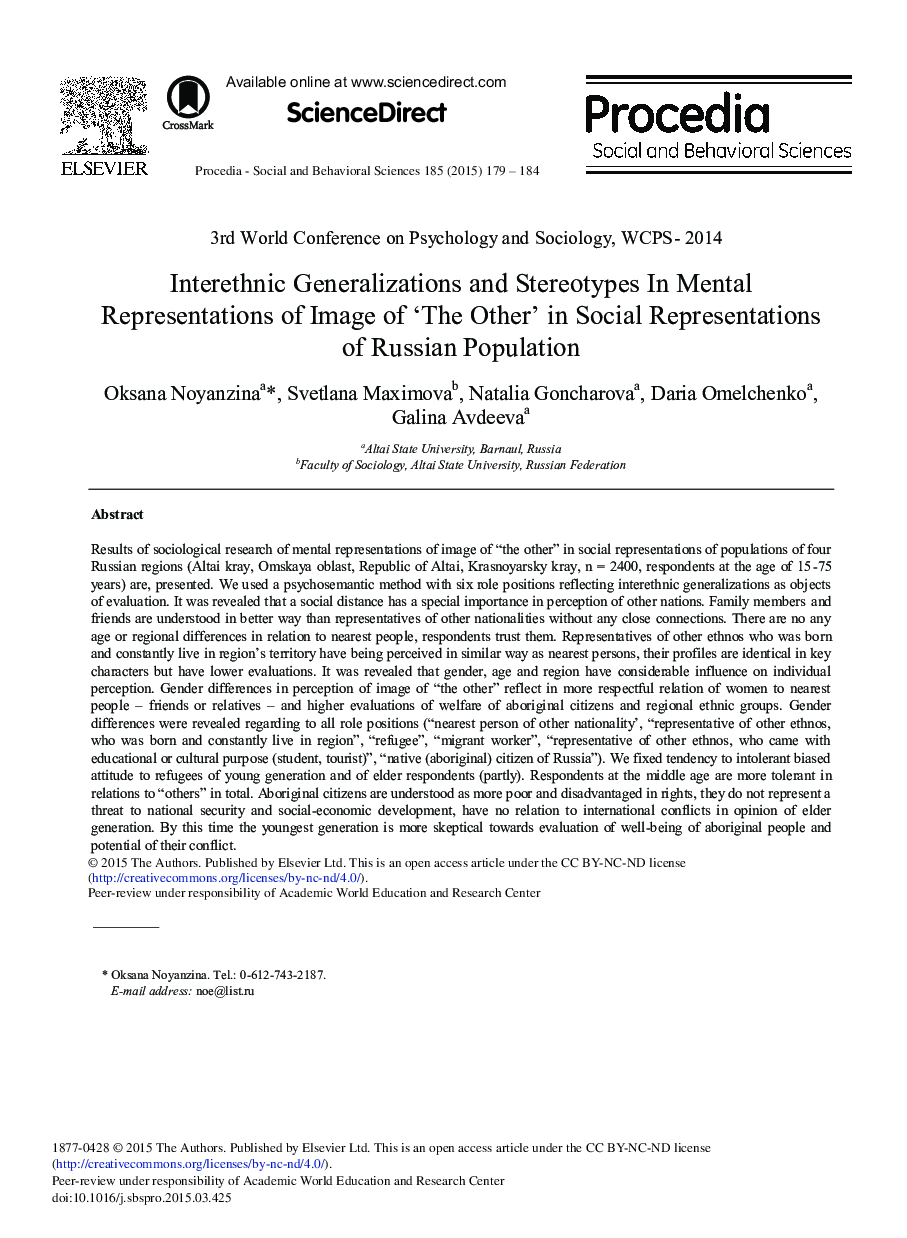| Article ID | Journal | Published Year | Pages | File Type |
|---|---|---|---|---|
| 1111015 | Procedia - Social and Behavioral Sciences | 2015 | 6 Pages |
Results of sociological research of mental representations of image of “the other” in social representations of populations of four Russian regions (Altai kray, Omskaya oblast, Republic of Altai, Krasnoyarsky kray, n = 2400, respondents at the age of 15-75 years) are, presented. We used a psychosemantic method with six role positions reflecting interethnic generalizations as objects of evaluation. It was revealed that a social distance has a special importance in perception of other nations. Family members and friends are understood in better way than representatives of other nationalities without any close connections. There are no any age or regional differences in relation to nearest people, respondents trust them. Representatives of other ethnos who was born and constantly live in region's territory have being perceived in similar way as nearest persons, their profiles are identical in key characters but have lower evaluations. It was revealed that gender, age and region have considerable influence on individual perception. Gender differences in perception of image of “the other” reflect in more respectful relation of women to nearest people–friends or relatives–and higher evaluations of welfare of aboriginal citizens and regional ethnic groups. Gender differences were revealed regarding to all role positions (“nearest person of other nationality’, “representative of other ethnos, who was born and constantly live in region”, “refugee”, “migrant worker”, “representative of other ethnos, who came with educational or cultural purpose (student, tourist)”, “native (aboriginal) citizen of Russia”). We fixed tendency to intolerant biased attitude to refugees of young generation and of elder respondents (partly). Respondents at the middle age are more tolerant in relations to “others” in total. Aboriginal citizens are understood as more poor and disadvantaged in rights, they do not represent a threat to national security and social-economic development, have no relation to international conflicts in opinion of elder generation. By this time the youngest generation is more skeptical towards evaluation of well-being of aboriginal people and potential of their conflict.
